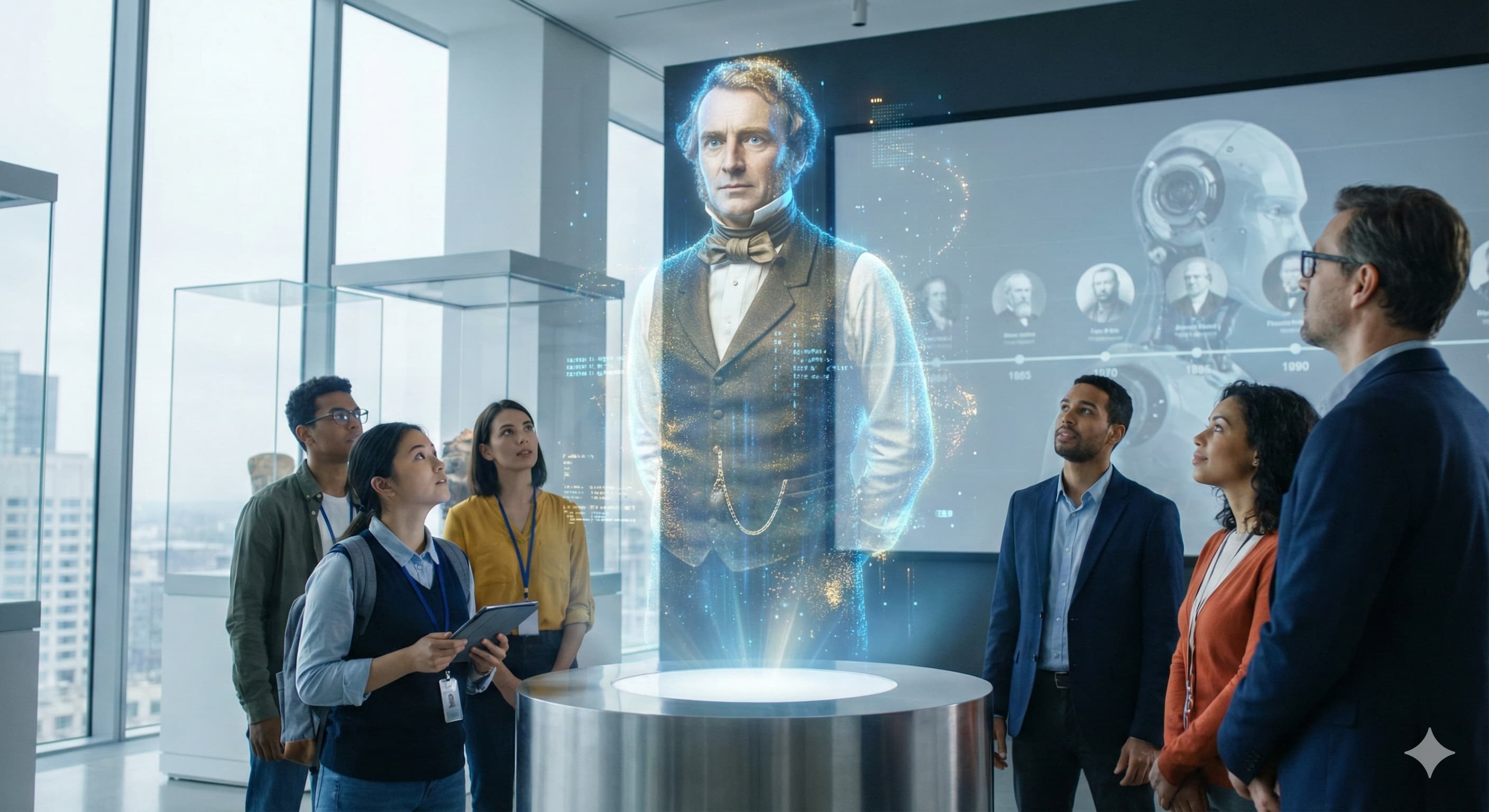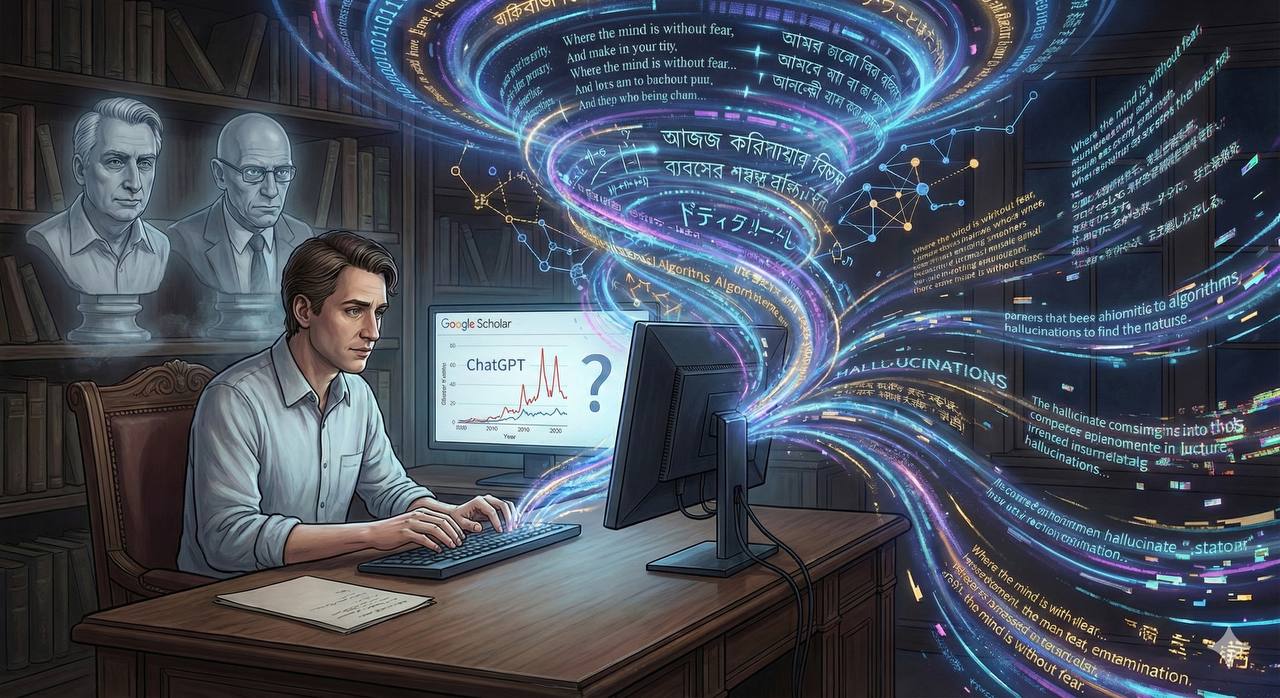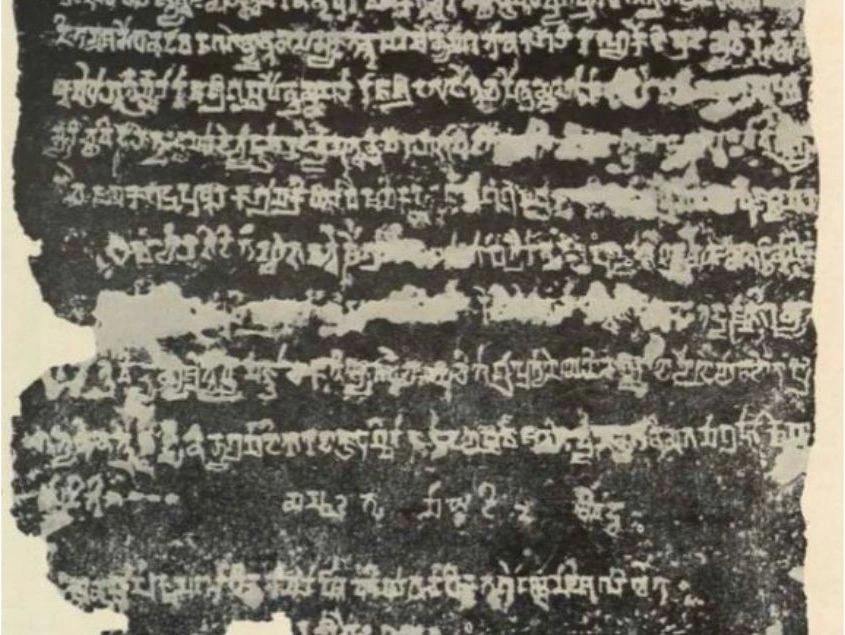The future of the study of past in the era of Artificial Intelligence
“History is a continuous dialogue between the past and the present, and an interaction between the historian and the facts” E. H. Carr.
The reconstruction of the past based on the primary and secondary sources is called historiography. The sources play a crucial role in unearthing the mysteries of the past, and the historians use various scientific and technical methods to study the evidence and use their perspectives to write about the past.
The advent of artificial intelligence disrupted the way in which the past is being studied and interpreted. The AI is able to decipher old scriptures and missing links in the faded inscriptions and ancient texts. The AI is being used in translating and simplifying the ancient languages for interpretation of history.
The selection of sources and their authenticity is very important in writing about the past of any community or nation. In the modern and postmodern periods, the newspapers, blogs, photographs, and videos became the sources for writing the history of a particular period or an event. The rise of AI-generated content in writing, photos, and videos, and deepfake content will lead to the development of false narrations and fake history.
The growing tendencies of regionalism and consciousness about proving the unique identity of the region from the past lead to false narrations and interpretations of the past. The AI is being used in generating the content to propagate these narrations on a large scale through various social media platforms.
Historically, the ancient scriptures and religious and secular literature were mostly written by men and certain dominating sections of the society. The women and marginalized communities rarely had a say or written any of their versions of the history.
The large language learning models (LLMs), the basis for artificial intelligence, have been trained on these existing scriptures and literature, reflecting the similar biases and disparities. The digital divide, gender bias, and discrimination across the globe further intensify the loss of the voice of women and marginalized sections in the history of humankind.
The differences in local language nuance and cultural differences, differences in value systems across the sections and countries, are fully depicted in many of the writings by the foreign travelers and outsiders presenting the history of a region from their perspective.
The various schools of history, like colonialist, Marxist, feminist, and environmentalist, have narrated the events from their perspective, and with changing times, the same event is presented in different narration to suit current political and societal demand. The narratives generated using artificial intelligence lead to new versions of the events and further propagate the fabricated versions of the past.
Impact of technology on history writing over the decades
The advent of printing presses, computers, and the internet brought significant changes in the reconstruction of the past and its outreach to the grassroots level. However, it was individuals and their consciousness that reflected in the writings. But in the era of the internet, the masses started taking Wikipedia as the source of knowledge, and WhatsApp and other social media messenger apps became the platforms for reconstruction of the past and presenting it to the future.
Though these platforms democratised the writing of history and reconstruction of the past, giving voice to everyone to narrate their stories in their own language and version, rather than being narrated by outsiders from their perspective. On the other hand, the lack of inclusivity and the digital divide mean larger sections of society are missing on digital platforms, and their stories remain unheard forever.
Role of AGI, Chatbots, and Superintelligent Artificial Intelligence
Artificial intelligence in its current form enabled historians to overcome the limitations like issues of translation, missing elements in the old texts, deciphering the ancient inscriptions, and comparative literature.
The ChatGPT, Gemini, and other platforms are acting as the brainstorming agents for historians to come up with the new orientations and analysis of the events that happened in the past and comparing them with ongoing movements and predicting the outcomes of the future of such movements.
However, the writers and historians are worried about the loss of originality and uniqueness of the writers with the standardisation of writing style and language. There are different ways of recording the past in the form of prose, poetry, ballads, paintings, and oral traditions passed through generations.
Until and unless all these formats are brought into the fold of large language learning models and localised small language learning models are developed to mainstream the silenced portions of the history.
Future course
As the past cannot speak for itself, it's the responsibility of the individuals in the present to document the present and reconstruct the past in the right manner. Artificial intelligence plays a crucial role in this.
Every individual, community, and nation should write its own history and digitize it using 3D modelling, 3D printing, stealth archeology, and audiovisual formats to protect the heritage from natural disasters and man-made disasters and making it accessible beyond geographical boundaries.
In Indian Context
A country like India, with its geographical and language diversity, has a unique historical tradition that differs from the western historiographic tradition. The scholars like Alberuni questioned the historical sense of the Indians. The colonial historians also questioned the historical sense in Indian writings.
These narratives were countered by the Nationalist Historians and the Puranic, oral historical records, and all forms of history are identified and brought into the mainstream of history in recent times.
Modern historians should adopt the changing technologies and use the AI assistants to write more factual yet creative short stories to narrate the history in an interesting manner and make it a lively subject.









